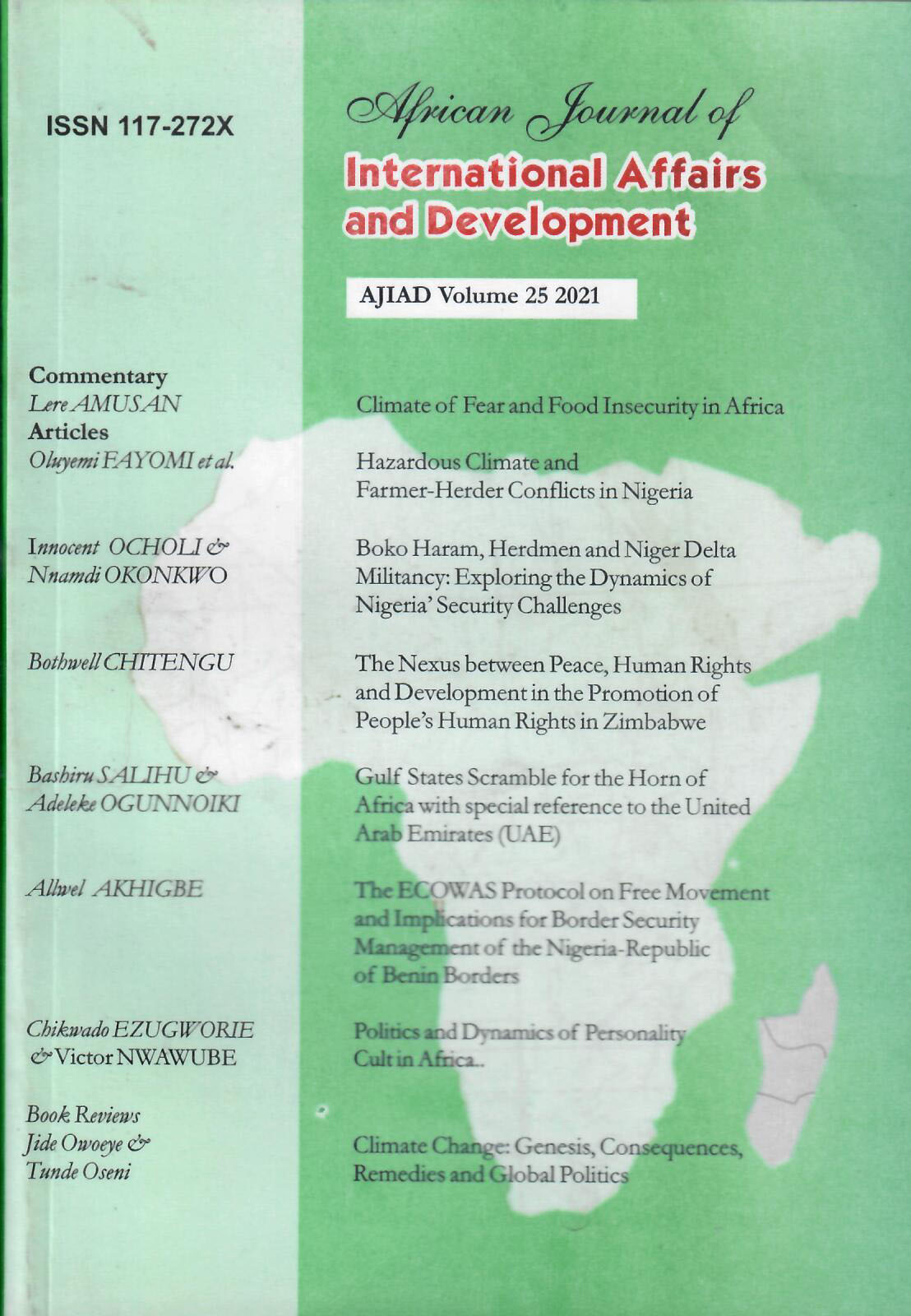The ECOWAS Protocol on Free Movement and Implications for Border Security Management of the Nigeria-Republic of Benin Borders
Keywords:
ECOWAS Protocol, Transnational organized crimes, free movement, border security.Abstract
This paper interrogates the ECOWAS Protocol on Free Movement and the
implications for border security management of the Nigeria-Republic of Benin
borders. The ECOWAS Protocol on Free Movement of Persons was enacted in
1979 to ensure the free flow of persons, goods and services deemed crucial to
attaining economic integration. Despite the benefits of the Protocol including
promotion of free trade and commerce as well as easy exchange of human resources
across the border, severe challenges still persist such as the concomitant increase
in Transnational Organized Crimes (TOCs) that are a signature of African
borders. Human trafficking is a particularly notorious crime that this article
pays attention to due to the emphasis by the ECOWAS Common Approach to
Migration of 2008. Porosity of the borders and inefficient border facilities are
also obstacles. The ECOWAS Protocol though well intentioned has further
aggravated the problems faced by Nigeria and the Republic of Benin as regards
borders in the sub-region. Unofficial routes have sprung up thereby compounding
the issue of policing these borders. It is imperative that the governments of
Nigeria, the Republic of Benin and the ECOWAS authorities begin to reconsider
the effects of the protocol in the light of the current realities. This paper makes
the case for a more proactive implementation of the ECOWAS protocol by
installation and maintenance of sound border facilities, promotion of interagency cooperation across border agencies of both countries and appropriate funding
for these border agencies.

